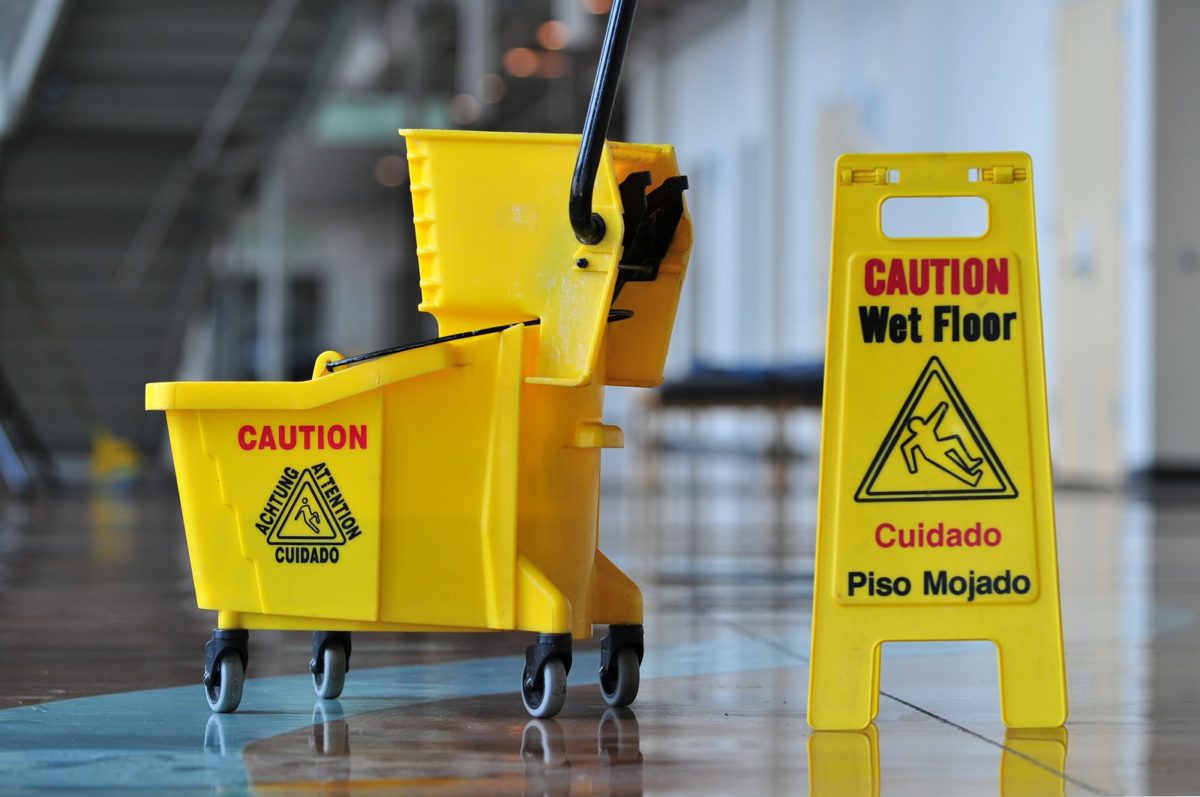
A stumble down a stairway, a trip over an uneven surface, slipping on ice—all of these can lead to a variety of regrettable events ranging from a simple bruised shin to an extremely serious injury. Slips, trips and falls make up the majority of general industry accidents, accounting for 15 percent of all accidental deaths per year (second-leading cause behind motor vehicles).
There are a variety of situations that may cause slips, trips and falls, so knowing how to reduce them in your business is a good idea. If a patron were to fall and injure themselves on your premises, your business is likely to be subject to a general liability insurance claim, which can be costly without the right New Jersey General Liability Insurance program. In addition to ensuring you have the right coverage, take the following measures to reduce the risk of slips, trips and falls on your property.
Establish Good Housekeeping Practices
If your facility’s housekeeping habits are poor, the result may be a higher incidence of employee and customer injuries. Proper housekeeping is an ongoing collaborative procedure. Begin a program by:
- Planning ahead. Know what needs to be done and what the particular work area should look like when complete.
- Assigning responsibilities. Personal responsibility for cleaning up after oneself is ideal but you may need to assign specific people or group to clean.
- Implementing a program. Establish housekeeping procedures as a part of the daily routine.
Reduce Wet and Slippery Surfaces
Winter conditions conditions can affect indoor surfaces as well as outdoor surfaces, as moisture is tracked inside. Traction control procedures include:
- Keeping parking lots and sidewalks clean and in good repair condition.
- Removing or treat snow and ice.
- Using adhesive striping material or anti-skid paint whenever possible.
Some control measures specific to the indoors include:
- Using moisture-absorbent mats with beveled edges and a gripping back.
- Displaying “Wet Floor” signs as needed.
- Using anti-skid adhesive tape in troublesome areas.
- Creating a procedure for taking the appropriate action when food or drink is split.
Avoid Obstacles in Walkways
Injuries can also result from trips caused by clutter in aisles and entryways. Have these policies in place, especially where scrap material is a byproduct of the work operation:
- Keep all work areas, passageways, storerooms and service areas clean and orderly.
- Avoid stringing cords, cables or air hoses across hallways or in any designated aisle.
- In office areas, avoid leaving boxes, files or briefcases in the aisles.
- Close file cabinet drawers after use and pick up loose items from the floor.
Have Proper Lighting
Poor lighting in the workplace is associated with an increase in accidents.
Along with keeping a well-lit work area, use proper illumination in walkways, staircases, ramps, hallways, basements, construction areas and dock areas. One should always turn on the light first when entering a dark room. Keep areas near light switches clear of clutter. Repair malfunctioning fixtures and switches immediately.
Promote Individual Participation
Hurrying around increases the chances of a slip, trip or fall. Taking shortcuts, not watching where one is going, using a cell phone, carrying materials that obstruct vision, not wearing proper shoes, wearing sunglasses in low-light areas, and not using designated walkways are common factors in many on-the-job injuries. Encourage employees to plan, be mindful, stay alert, and pay attention.
About Provident Protection Plus
At Provident Protection Plus, we have served the businesses and residents of New Jersey, New York and Pennsylvania for more than 65 years. We are a wholly owned subsidiary of Provident Bank, the region’s premier banking institution, and we are prepared to offer you personal, business, employee benefit, and risk management solutions. To learn more about our coverage options, contact our specialists today at (888) 990-0526.



